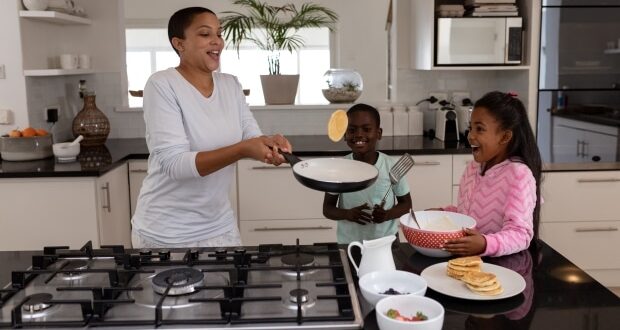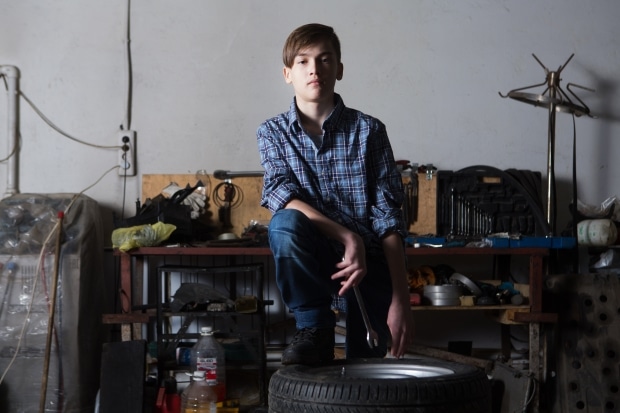Air quality is a hot topic regarding talks about climate change and pollution. But what about the air quality inside your home? Many people are debating the safety of gas stoves for this very reason. Keep reading for what you should consider.
How Do Gas Stoves Work?
We won’t get too technical here, but it’s essential to understand how gas stoves work to address their safety. Simply put, gas stoves run off a natural gas or propane line connected to the home’s interior. You can turn the stove on and cook over the open flame adjusted to your desired temperature.
Gas Stove Pros
The pros of this cooking mechanism are that the temperature changes happen quickly, and water boils faster. You can cook directly over the flame instead of using a pot or pan.
These stoves also work when the power goes out, so you can still heat food. This can be helpful for people who live in more rural areas where they may lose power more often or have to wait longer for it to be turned back on.
Gas Stove Cons
Gas stoves can be pricey. Running the correct lines and ensuring they are safe takes time and labor, which are additional expenses. They are also harder to clean, and the temperature isn’t always the most, even when cooking.
With these things in mind, let’s turn our attention to the latest reports on gas stove safety inside the home.
The Safety Of Gas Stoves: Are They Dangerous?
Any time you have an open flame in your home, there are safety considerations you need to think about. These largely surround the topic of the type of gas you are using.
For example, natural gas consists primarily of methane and other chemicals that can leak into the air with incomplete combustion. The World Health Organization even warns that methane greatly contributes to climate change and human health.
Considering how much is run off of natural gas, we can see how necessary safety precautions are. Water heaters, furnaces, fireplaces, dryers, and more all rely on natural gas to keep them running.
So, while gas stoves are certainly a consideration, they’re not the only thing we need to monitor regularly.
As we look at the other chemicals that off-gas from a pipeline, It’s also important to be wary of carbon monoxide poisoning, as it kills more than 400 people annually in the United States.
All these things together mean there are potential hazards and health risks almost anywhere in a home that runs on natural gas.
These risks include anything from reproductive issues to respiratory-related diseases, such as asthma, to even death. That’s why knowing the risks and how to control them is essential.
Safety Precautions To Put In Place
Many homes do not vent their gas stoves outside, which is one of the people’s biggest concerns when using these cooking mechanisms. Proper ventilation can help mitigate some of the indoor pollution from gas stoves.
While this doesn’t solve the exterior air quality issue, it can help you avoid indoor hazards to your and your family’s health.
In addition, make sure any appliances run on gas or propane are correctly installed, as this can help decrease your air quality risks significantly. And always install carbon monoxide detectors inside your home in appropriate places.
Other Factors To Consider
Consumer reports and government findings have shown that gas stoves could pose these health risks and climate issues mentioned above. But one should consider all of the facts, and even the introduction of the Green New Deal and its desire to tackle chemical emissions when considering whether or not a gas stove is appropriate for your home.
Gas Stoves: You Decide
The bottom line is there are multiple sides to the issue, and there’s no perfect solution to the safety of gas stoves right now.
The most important thing is keeping your family safe. As we mentioned, ensuring proper installation, ventilation, and detection of harmful chemicals is one of the best lines of defence against any potential off-gassing and hazardous toxins leaching into the environment around you.
If you aren’t sure if your home has a problem, seek professional advice. Have your appliances inspected. And monitor your family’s health for any adverse signs of respiratory distress or endocrine issues.
With the right knowledge and an awareness of the issue, you can enjoy your gas stove in your home.






